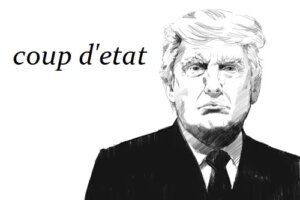The Fragility of Power: Historical Insights into Military Splits and Their Impact
At Extreme Investor Network, we delve deep into the complex relationships between military power, political authority, and economic stability. This examination is not merely historical; it serves as a lens through which we can better understand contemporary tensions within governments and their armed forces. As we take a closer look at the subject, we uncover valuable insights that shed light on why military splits are far from routine—they are often catalysts for significant change.
A Question of Authority: Military Splits in History
The Context of Power Dynamics
When discussing the question posed by a reader about whether military splits are routine, it’s essential to consider the historical precedents that inform our understanding. One striking instance occurred during the August 1991 coup attempt against Soviet President Mikhail Gorbachev. When Boris Yeltsin defiantly climbed onto a tank and rallied the citizens of Moscow against military leaders, it underscored a pivotal moment in Russian history. The military’s decision to stand down marked a notable defiance of authority and changed the course of the nation.
The figure at the center of this plot was Vladimir Kryuchkov, the KGB’s chief, whose career exemplified the old regime’s institutions. Kryuchkov’s memoirs provide intriguing insights into the mindset and machinations within Soviet power during the twilight of its existence. One can’t help but reflect on how his actions resonate with current global dynamics where military affiliations can determine the fate of governments.
Unpacking the Military’s Role in Governance
From Stability to Dissent: The Case of Rome
In ancient Rome, military splintering was a frequent occurrence during times of leadership crises. The infamous year of the Four Emperors (69 AD)—where Galba, Otho, and Vitellius all vied for power—demonstrates how military loyalty can sway dramatically with political tides. Such transitions often destabilize existing structures and can quickly lead to civil unrest.
The assassination of Emperor Commodus later highlighted the intertwining of military allegiance and political outcomes. The Praetorian Guard, entrusted to protect the Emperor, became his assassins instead, further emphasizing the precarious balance of power. This historical backdrop reveals the high stakes involved when military forces fracture; outcomes are seldom predictable, affecting both governance and economic stability.
Economic Consequences of Political Upheaval
Understanding military splits extends beyond political theory into the realm of economics. The 1783 Pennsylvania Mutiny serves as a prime example of how distressed soldiers, faced with unmet financial obligations, turned against their government. This uprising not only questioned the legitimacy of authority but also underscored clear economic implications—an inability to pay has historically led to calls for revolt.
Such historical events continue to inform contemporary views on military spending, national debt, and the potential for unrest when economic strains become unbearable. As experts at Extreme Investor Network, we urge our readers to consider how these themes play out today in current geopolitical landscapes, where economic policies can either fortify or fracture military solidarity.
Societal Reflection: Modern Military Dynamics
Fast forward to today, we see echoes of these historical events in modern governance. With growing political polarization, the military’s role in civil society is becoming increasingly scrutinized. Political leaders’ hesitance to employ military force—be it the National Guard or other armed entities—suggests a fear of potential backlash and division among troops themselves. Such hesitations indicate a recognition of the delicate balance of power within our own governments.
Conclusion: Learning from the Past
As we reflect on historical military splits—from the Soviet coup to the Roman Empire’s political turmoil and the Pennsylvania Mutiny—we recognize that power is never static. The interaction between military authority and political legitimacy is complex and fraught with peril, cautioning us against complacency in our own institutions.
Extreme Investor Network remains committed to unpacking these intricate dynamics, offering insights that not only illuminate the past but also provide a framework for predicting future trends in both governance and economics. Join us for more articles that explore how history informs current events, ensuring our readers are well-prepared for what lies ahead.

